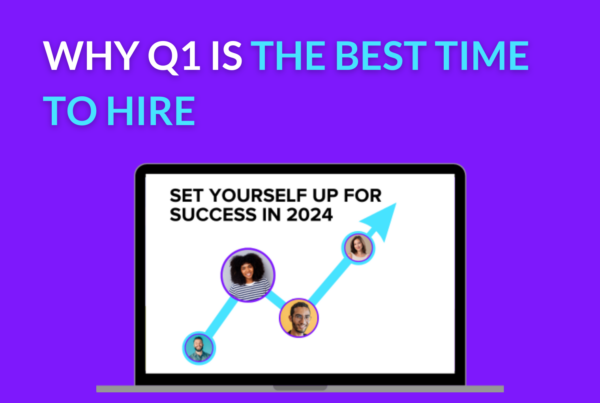In today’s candidate driven market, job seekers have an important decision to make: do they prioritize a more generous annual salary, or do they take a chance on securing equity? Hired’s 2021 State of Tech Salaries report observed that 76% of candidates are willing to accept a lower base salary for equity options. For companies, this is an attractive opportunity – you’re decreasing spending in employee salaries in the short term whilst also incentivizing employees to help the company succeed in the long run.
In the world of HealthTech, it’s common – and often expected – that startups and scale ups offer their employees some part of their compensation package in the form of equity options. But how should you weight the tradeoffs between salary and equity? Whether you’re trying to choose between various job offers or a company has offered you a choice of compensation packages, this article will give you greater insight into whether you should base your decision on salary or equity.
Salary Vs Equity: The Ins And Outs
Before diving into the decision, it’s important to recognize how salary and equity offerings differ in the short term as well as how they may pay off down the line.
Salary:
Salary is simply cash in your pocket today, which you can use any way you’d like. Whether it’s put towards your daily living expenses or invested, it’s clear how much a salary is worth today, and you can also estimate how much money invested today will be worth in the years ahead.
Equity:
Compared with salary, equity is a bit trickier. Think of yourself (the employee) as a mini-Venture Capital fund, accepting equity in replacement for the value you provide the company. For a VC, the value is capital in the form of cash, while employees offer human capital and accept equity as a – partial – replacement of a higher cash salary.

What Exactly Is Equity?
In the HealthTech world where startups are rife, equity is a term that is often discussed but seldom understood. Put simply, equity is a type of non-cash pay that is offered to employees; it may include options, performance shares or restricted stock, with all these investment vehicles representing ownership in the company. By securing equity in your company, you’re being given a stake in the business, meaning you will financially benefit from its growth and success. For example, if an employee is given 1% equity in their organization, they’re entitled to 1% of all shares of stock once the company reaches IPO.
What Kinds Of Equity Are There?
Equity Shares:
When an employee joins a company, they may be offered a set number of equity shares. Unlike stock options, employees don’t need to purchase these shares; instead, they’re provided as a form of non-cash compensation. Offering equity shares is a common hiring tactic that entices many candidates to join a startup.
Stock Options:
The most common form of equity for employees, Stock Options allow companies to provide a formal document to employees that details the number of shares they can receive and the price at which they can acquire this stock. Essentially, the acquisition price is awarded to employees at a large discount.
Stock Purchase Plans:
Through Stock Purchase Plans, shares of stock are obtained after a predetermined vesting period. Employees aren’t mandated to report them on federal tax returns.
Restricted Stock:
Restricted Stock is a form of equity ordinarily offered to executives. To acquire this form of equity, employees must complete a predefined vesting period designed to prevent executives from starting at a company, acquiring their shares of stock, and then leaving to pursue another opportunity.
What Is A Vesting Period?
A vesting period is the time before shares in an employee stock option plan are entirely owned by the employee. There are several kinds of vesting periods, from cliff vesting to graded vesting, but the concept always remains the same: employees must work in the company for a certain period – typically three to four years – before their equity vests. For HealthTech startups, vesting periods are often implemented to help ensure that employees remain with the company for an extended time without concern of a departure.

Salary Or Equity: Which Option Should You Choose?
Having options when it comes to choosing compensation packages is a great thing; but it can be difficult to decide which option is the best for you. Here’s a few points to consider when evaluating between salary and equity:
Is A Lower Salary Offer Enough To Sustain Your Cost Of Living?
Joining a startup as opposed to a pre-established company can be an extremely exhilarating experience. However, it’s common to see lower salaries paired with higher equity stakes in startup organizations. As a rule, the smaller the company, the lower the chances are that they’ve raised high funding valuations. Take the time to calculate your outgoing expenses to determine the minimum salary you’d be able to accept at this time – this is especially critical for those living in expensive Tech hubs like San Francisco and New York, where the cost of living can eat up a large chunk of your income.
How Strongly Do You Believe In The Company?
Joining a new company is an incredibly exciting prospect, but if you’re trading off between salary and equity, it’s also a time to think very critically about how confident you are about the company’s future, as well as its exit forecasts, which will ultimately dictate how much your equity will be worth.
Is There An Exit Strategy?
An exit event is when the company either goes public or is sold. As part of your equity evaluation, ask the Founders what the overarching exit strategy is. Are they planning to sell? Do they want to go public in five years? Knowing the answer to these questions will help you understand the potential for your equity to turn into a large sum of money.
How Long Is The Vesting Schedule?
Ask the specifics on the company’s vesting schedule to know precisely how much you’ll own and when. The most common vesting schedule is four years with a one-year cliff. A one-year cliff means you don’t vest during your first year of employment and the idea behind it is to avoid situations where an employee who may turn out to be a poor fit gets away with a piece of the company. For this same reason, Founders and Co-Founders are also typically subject to a vesting restriction. Once you’ve been employed at the company for a full year, a quarter of your total equity grant will be yours. At this point, the balance of your equity vests to you either monthly or quarterly.
What Is Your Four-Year Plan?
Typically, equity comes in the form of a four-year vesting schedule, meaning you won’t have the option to purchase any shares before year one, and the rest will take a further three years to vest. If you’re planning on relocating or don’t expect to stay in the company for long, factor this into your compensation decisions.
What Is Your Percentage Ownership?
Arguably, this is the most important question you should ask when discussing equity compensation, as your percentage ownership will determine how much you’ll be paid out in the event of an exit. When discussing the number of share offers you’re being offered, ask how many total shares there are outstanding. The number of shares or options you own divided by the total shares number is the percentage of the company you own. The employee equity pool at typical startups tends to fall between 10-20% of the total shares outstanding, meaning you and all current and future colleagues will receive equity from this pool.
Before you accept a job with a company, make sure to do your homework on your prospective employer. Research its product or service and see how it compares to competitors in the market. Ask leaders about the exit strategy; uncover if the owners want to pursue an IPO in five years, or if they have plans to sell the company. The organization’s response to these questions will largely dictate your decision on salary versus equity. For those willing to take a risk, opting for equity and joining an emerging HealthTech startup could revitalize your professional career.
Looking for your next role in the HealthTech space? Or on the hunt for a talented professional who will take your startup to the next level? Storm3 has a rich database of candidates and clients and are here to advise you on compensation packages, as well as to help you grow your team. Get in touch with one of our expert consultants today or learn more about the roles we work with.







